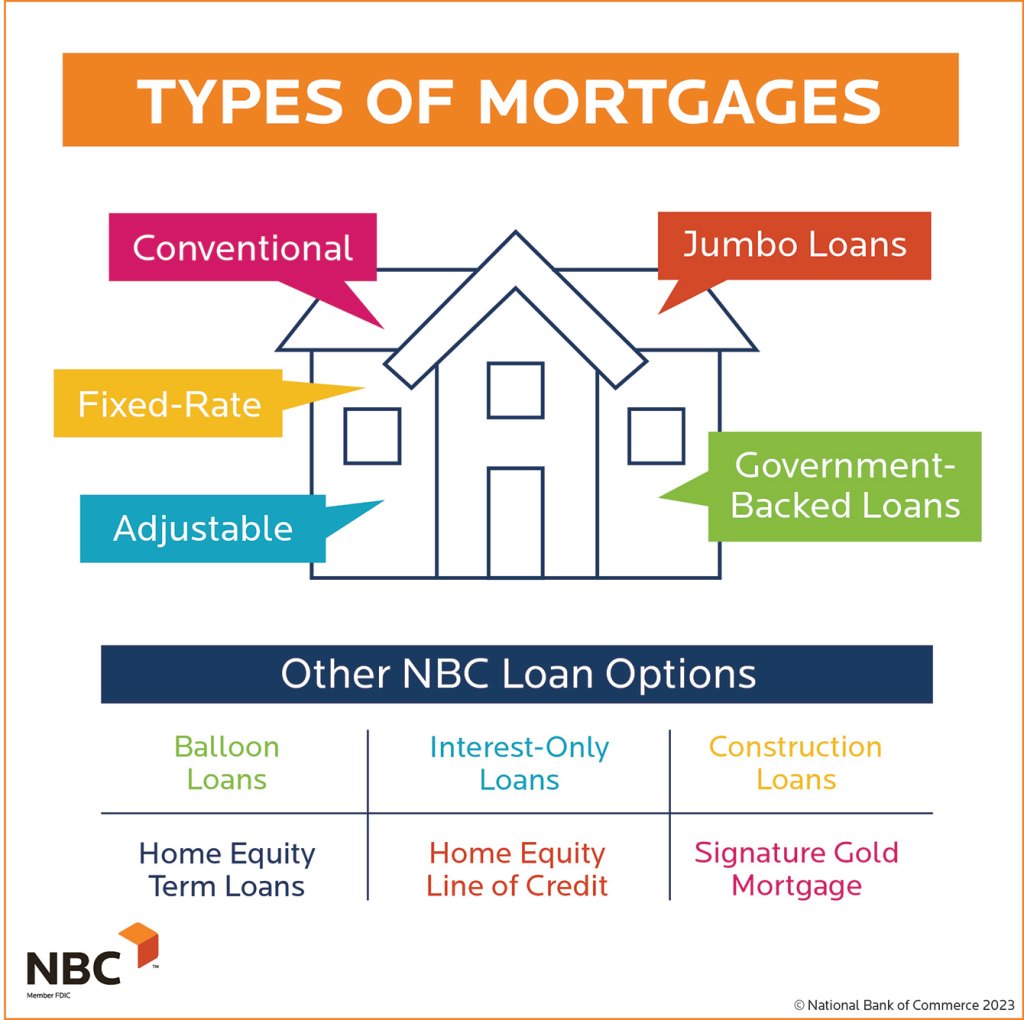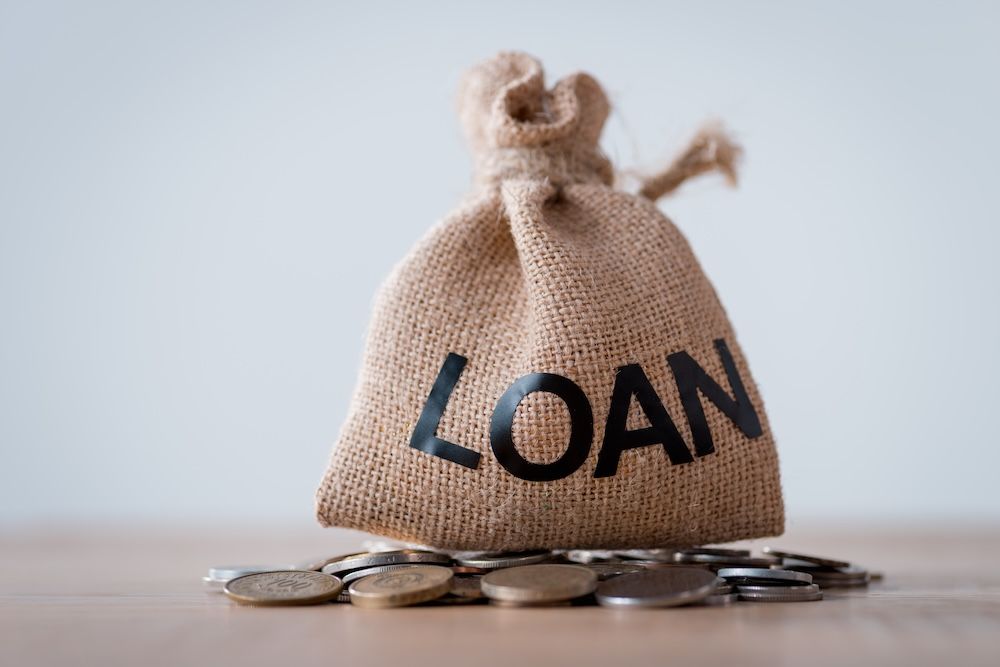A Comprehensive Overview to Home Loans: Solutions and Options Explained
Charting the globe of home finances can be intricate. Different alternatives exist, each with one-of-a-kind features and effects for prospective house owners. Understanding the differences between traditional and government-backed lendings is necessary. Additionally, the application procedure includes careful documents and pre-approval actions that numerous forget. As debtors begin on their home-buying journey, knowing exactly how to take care of these duties successfully might imply the difference in between economic security and difficulty. What strategies can equip them on this path?
Understanding Home Loans: Types and Terms
Comprehending the various kinds of home lendings and their linked terms is crucial for prospective home owners, as it equips them with the understanding required to make enlightened economic choices. Home financings can be broadly classified right into adjustable-rate and fixed-rate home mortgages. Fixed-rate home loans keep a regular rate of interest over the life of the car loan, giving security in regular monthly settlements. Installment Loans. Conversely, variable-rate mortgages feature rate of interest that may vary after a first fixed duration, potentially causing lower preliminary settlements however enhanced future prices
Extra terminology is important for quality. Principal describes the finance amount obtained, while interest is the expense of borrowing that quantity. The term of the financing suggests its period, typically varying from 15 to three decades. Recognizing these basic ideas enables potential customers to browse the facility landscape of home financing, guaranteeing they choose the best loan choice that aligns with their monetary scenario and long-term goals.
Traditional Car Loans vs. Government-Backed Loans
A considerable distinction in home funding exists in between conventional financings and government-backed loans, each satisfying various borrower demands and scenarios. Standard loans are not insured or assured by the federal government and usually call for higher credit report and down payments. They are typically attracting borrowers with secure financial histories, as they might use competitive rate of interest and terms.
On the other hand, government-backed loans, such as FHA, VA, and USDA car loans, are created to help details teams of debtors, including novice property buyers and veterans. Cash Loans. These loans usually include reduced deposit demands and more flexible credit scores requirements, making them obtainable to a broader variety of people
Inevitably, the choice between government-backed and standard car loans pivots on the borrower's financial circumstance, long-lasting goals, and eligibility, making it necessary to meticulously review both choices prior to deciding.

The Role of Rate Of Interest in Home Financing
Passion prices play a vital function in home funding, influencing consumers' choices in between variable and fixed rate loans. The option in between these options can substantially influence regular monthly payments, affecting total affordability. Understanding just how rates of interest function is vital for anybody navigating via the home lending procedure.
Repaired vs. Variable Prices
Homebuyers deal with a vital choice when picking in between fixed and variable rates, as this choice greatly impacts the price of financing gradually. Fixed-rate home mortgages supply security, securing an interest rate for the life of the funding, which can be helpful in an increasing passion rate environment. This predictability allows home owners to spending plan much more properly. Conversely, variable-rate mortgages, or variable-rate mortgages (ARMs), generally begin with lower preliminary rates that can vary based upon market problems. While this might result in lower preliminary repayments, customers encounter the risk of raised prices in the future. Eventually, the choice between variable and fixed prices relies on individual monetary circumstances, danger tolerance, and assumptions pertaining to future rates of interest patterns.
Effect on Regular Monthly Payments
When assessing home funding choices, the effect of rates of interest on monthly settlements is an essential aspect to consider. Rate of interest directly affect the general expense of borrowing, impacting how a lot a consumer will pay every month. A reduced interest price outcomes in smaller sized month-to-month payments, making homeownership a lot more cost effective. On the other hand, greater rates can considerably raise regular monthly responsibilities, potentially stressing a property owner's budget plan. In addition, the finance term plays an important role; longer terms may spread repayments out yet can lead to paying more interest with time. Understanding how interest prices interact with finance quantities and terms is vital for customers to make enlightened monetary choices and select a mortgage that straightens with their long-lasting financial objectives.
Mortgage Brokers vs. Straight Lenders: Which Is Right for You?
When thinking about a mortgage, potential customers must comprehend the distinct functions and obligations of mortgage brokers and direct lending institutions. Each option provides its very own benefits and downsides, which can substantially influence the overall cost of funding. An educated selection needs careful analysis of these aspects to determine the very best fit for specific requirements.
Responsibilities and roles Defined
Steering the check out here complexities of home funding calls for a clear understanding of the functions and obligations of home mortgage brokers and direct lending institutions. Mortgage brokers act as middlemans, attaching consumers with lenders. They assess a borrower's monetary scenario, curate funding choices, and overview customers via the application process, usually leveraging numerous lending institution connections to protect desirable terms. Conversely, direct lenders, such as banks and cooperative credit union, supply fundings directly to borrowers. They deal with the entire loan process, from application to funding, with a concentrate on their very own items. Each option presents distinctive opportunities for acquiring financing, making it necessary for consumers to evaluate their choices and demands when choosing between engaging a mortgage broker or functioning with a direct lender.
Disadvantages and pros Comparison
Selecting in between a mortgage broker and a straight lending institution can considerably affect the home funding experience, as each choice offers distinct advantages and downsides. Home loan brokers work as middlemans, giving accessibility to several lending institutions and potentially better prices, while simplifying the funding procedure. Nonetheless, they may bill fees and count on commission structures that could affect their recommendations. On the various other hand, straight lending institutions improve the process by offering in-house financings, which can result in faster approvals and fewer difficulties. On the other hand, they might have a minimal option of products and much less flexibility relating to pricing. Inevitably, the decision rests on individual choices, financial situations, and the wanted degree of assistance throughout the home mortgage trip.
Expense Implications Analyzed
While assessing the cost effects of home mortgage brokers versus direct loan providers, potential homeowners have to consider different factors that can greatly affect their general expenses. Home loan brokers normally bill fees for their services, which can vary significantly, influencing the overall finance price. They commonly have access to a larger array of lending products and competitive rates, possibly conserving customers money in the lengthy run. Alternatively, straight lending institutions may supply a much more uncomplicated procedure with perhaps reduced ahead of time costs, however their loan alternatives might be limited. It is essential for homeowners to compare rate of interest rates, costs, and terms from both brokers and lenders, ensuring they make an educated choice that lines up with their economic goals and requirements.
The Home Mortgage Application Refine: What to Expect

The mortgage application procedure can commonly really feel frightening for lots of applicants. It usually starts with gathering needed documentation, including proof of earnings, credit report, and personal identification. Lenders utilize this details to examine the applicant's monetary security and great post to read establish finance qualification.
Next off, applicants send an official application, which may entail filling in on-line forms or providing information personally. During this phase, loan providers review different aspects, such as debt-to-income proportion and credit history, to pick lending terms.
As soon as pre-approved, the loan provider will perform a comprehensive assessment of the residential property to determine its value straightens with the loan quantity. This phase may likewise include additional background checks.

After last approvals and conditions are fulfilled, the loan is processed, bring about the closing phase. Understanding each action equips candidates, making the trip smoother and much more manageable as they relocate towards homeownership.
Tips for Managing Your Home Finance Sensibly
Successfully steering the home financing application procedure is just the start of an accountable economic trip. Managing a home funding requires attention to numerous crucial techniques. Debtors should establish a clear budget plan that suits month-to-month home mortgage settlements, residential property tax obligations, and insurance. On a regular basis examining this budget plan helps protect against overspending and guarantees prompt settlements.
In addition, making additional settlements when feasible can considerably reduce the lending principal and overall passion paid over time. Customers ought to additionally keep open lines of communication with their loan provider, especially in times of economic difficulty. This can bring about prospective solutions such as finance alterations or refinancing options.
It is recommended to check credit history ratings regularly. An excellent credit history can supply possibilities for better financing terms in the future. Payday Loans. By complying with these suggestions, property owners can browse their finance obligations efficiently, guaranteeing lasting financial wellness and security
Frequently Asked Questions
What Are Closing Costs and How Are They Computed?
Closing costs encompass charges associated with wrapping up a mortgage, including appraisal, title insurance, and funding origination fees. These prices typically vary from 2% to 5% of the lending quantity, differing based on area and lending institution.
Can I Receive a Home Mortgage With Bad Debt?
Yes, people with negative debt can certify for a home finance, though options might be limited. Lenders frequently need higher down settlements or rate of interest, and discovering government-backed financings might boost opportunities of approval.
What Is Mortgage Insurance coverage and When Is It Required?
Home mortgage insurance shields lending institutions against default and is typically needed when a customer makes a deposit of much less than 20%. It guarantees that lenders recuperate losses if the debtor falls short to repay the financing.
How Does Refinancing Job and When Should I Consider It?
Refinancing involves replacing a current mortgage with a new one, typically to safeguard a lower interest price or change finance terms. Property owners should take into consideration refinancing when rate of interest go down significantly or their monetary scenario improves.
What Takes place if I Miss a Home Mortgage Repayment?
If a home loan settlement is missed out on, the lending institution usually evaluates late fees, reports the misbehavior to credit history bureaus, and may launch foreclosure process if settlements proceed to be overlooked, ultimately threatening the property owner's residential or commercial property.
Fixed-rate home mortgages keep a constant passion price over the life of the car loan, supplying stability in month-to-month repayments. A considerable difference in home funding exists in read here between standard finances and government-backed financings, each providing to various consumer needs and conditions. In contrast, government-backed lendings, such as FHA, VA, and USDA lendings, are developed to assist details teams of customers, including new homebuyers and professionals. Interest prices play an important role in home funding, influencing borrowers' choices in between fixed and variable rate car loans. Fixed-rate mortgages offer stability, securing in an interest price for the life of the finance, which can be beneficial in a rising passion price environment.